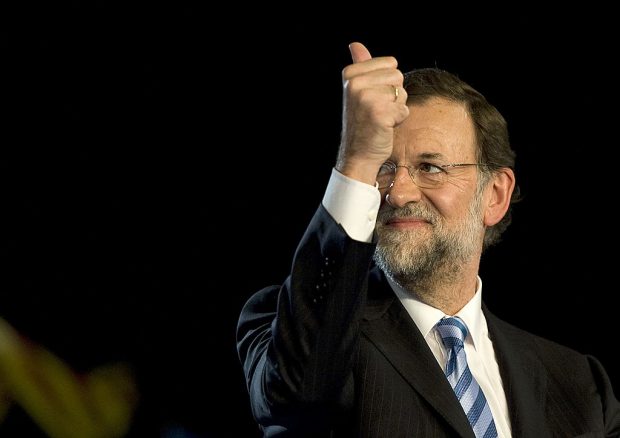After nearly a year of bickering and stalling, Spanish politicians have finally formed their country’s new government. Mariano Rajoy, leader of the conservative Popular Party (PP), returns for a second term as prime minister. This time, Rajoy heads up a coalition made up of the PP, centrist newcomer Ciudadanos (‘Citizens’) and the centre-right Canary Islands Coalition. This is good news for Spain and shows that, at last, pragmatism has trumped ideology. It has ensured that a dreaded third election, which had been looming in December, won’t now be needed.
Rajoy’s administration won’t have it easy though. The coalition is deeply unpopular with many Spaniards and will face formidable opposition in congress. What’s more, cross-party tensions – an inevitable part of political pacts of convenience – are also likely to cause trouble. But many will now hope that the country can lurch back into action after ten months of enforced idleness. The cross-party coalition has shown realism and a willingness to compromise – two qualities rarely seen in the last few months of shameful Spanish politics.
Not everyone is thrilled at the outcome of Spain’s political stalemate. The PP’s long-standing rival, the Socialist party (PSOE), is in meltdown after the resignation of its leader Pedro Sanchez a month ago. The party is staying stubborn in its refusal to team up with hard-left newcomer Unidos Podemos (‘United We Can’). While for its part, Unidos Podemos is mercilessly critical of the PSOE for dropping its opposition to Rajoy – the key move which made it possible for the veteran conservative to return to office. It’s no surprise that a hard-left group hungry for power would make such a criticism. Yet it’s also possible to see the Socialists’ decision to step aside in another, more positive way. After all, in paving the way for the formation of a new government, didn’t the party selflessly put the interests of the electorate before its own?
Unidos Podemos will never see it like that. In his speech to congress on Saturday, its leader Pablo Iglesias summed up the anger at the heart of the Spanish left which has blocked its path to power: ‘You’re closer to the PP than us,’ he furiously told the PSOE deputies. Both the new and traditional left-wing parties in Spain risk being defined by their opposition to the new Rajoy administration, rather than making themselves parties with their own, clearly stated policy agendas. What they don’t stand for is much more obvious to voters than what they do.
Although Iglesias’s criticism about the Socialists standing close to the PP might be at least partly true, their support isn’t unconditional. And it’s clear that already there’s a limit to how far the Socialists will be willing to aid a politician whose image they probably want to use as target practice. While 68 PSOE deputies abstained from voting against Rajoy last weekend, the party is adamant that it will never actively support the PP, let alone enter a ‘Grand Coalition’ with it. Instead, every time Rajoy tries to pass legislation, he’s likely to encounter the Socialists’ hostility.
Anti-corruption, business-friendly Ciudadanos have emerged as the most flexible group so far, but the PP is the only party it has managed to do a deal with in ten months’ of fraught negotiations – hardly a reassuring sign. Instead, repeated breakdowns in talks have resulted in months and months of political paralysis. Time was running out for embattled factions to put aside self-interest and finally form a new government. Urgent budgetary matters were on the horizon and the operational stasis putting off businesses was starting to bite. There’s also the undeniable fact that holding a third election in one year would have made Spain’s politicians look even more self-interested, dithering and stubborn than they did after the first two. Thankfully a third election has been avoided and now it’s time for Spain’s warring politicians to stop bickering, focus on their common ground and get on with governing. Will they manage? Few Spaniards will be holding their breath.






Comments